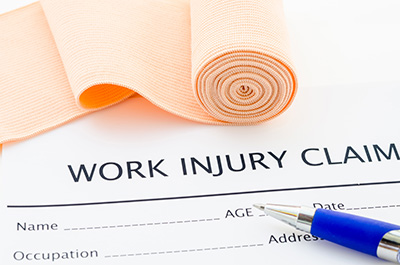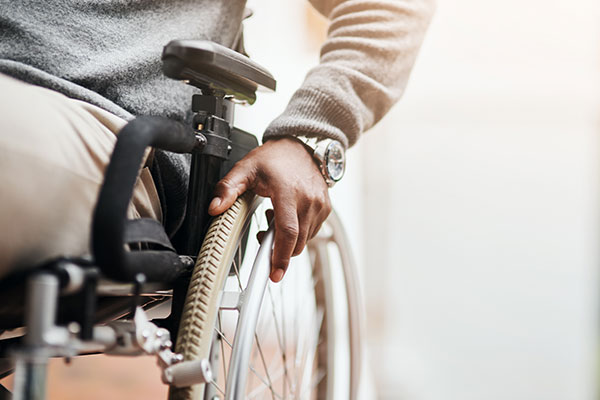Car accidents are a daily reality on Alabama’s roads, but when they happen during work-related activities, things can get a bit complicated. From determining fault to understanding eligibility for workers’ compensation, navigating the aftermath of a work-related car accident can feel overwhelming. But don’t worry—we’ve got you covered.
This guide will walk you through your rights after an Alabama car accident in a company vehicle and explain when you may be eligible to file a personal injury lawsuit in addition to a workers’ comp claim. By understanding the unique laws that apply in our state, you’ll be better positioned to access the benefits you deserve.
Injured in an accident while driving for work in Alabama? Schedule a free consultation with the knowledgeable Birmingham work injury attorneys at Nomberg Law Firm today to ensure you get the full compensation you’re entitled to.
What are some common causes of car accidents at work in Alabama?
Like most car accidents, work-related car accidents typically result from negligence and are often preventable. Some of the most common causes of vehicle accidents at work include:
- Distracted driving. Activities like texting or talking to passengers can divert attention from the road, increasing the risk of crashes. Distracted driving may also lead to other dangerous activities, like running red lights or stop signs, causing dangerous intersection collisions.
- Brake-checking and abrupt braking. Sudden or intentional braking, especially to discourage tailgating, can cause rear-end collisions if the following driver is unprepared.
- Overloaded or improperly loaded vehicles. Excessive or unbalanced loads can make trucks and other work vehicles harder to control, increasing the likelihood of rollovers, tire blowouts, or loss of steering.
- Reckless driving and speeding. Driving over the speed limit, weaving through traffic, and tailgating reduce reaction time and create unpredictable hazards, often leading to serious crashes.
- Impaired and fatigued driving. Alcohol, drugs, medications, and driver fatigue impair judgment, coordination, and reaction time. Drowsy driving slows reactions, while alcohol and drugs significantly increase the risk of severe accidents, especially on long drives or late at night.
- Poor weather conditions. Rain, fog, and ice make roads slippery and reduce visibility, increasing the risk of accidents when drivers fail to adjust their speed or driving habits.
- Inadequate vehicle maintenance. Poorly maintained work vehicles, including those with faulty brakes, worn tires, or malfunctioning lights, can result in mechanical failures and accidents.
- Lack of driver training. Employees who are not adequately trained to operate specialized or large vehicles, such as delivery trucks or forklifts, are more likely to be involved in accidents.
Due to the larger size of many work vehicles, work-related crashes often lead to catastrophic injuries like traumatic brain injuries, amputations, fractures, and spinal cord injuries, as well as fatalities.
In fact, according to the National Institute for Occupational Safety and Health (NIOSH), in 2022 alone, an estimated 1,369 workers died while driving or riding in a motor vehicle on public roads, making up 25% of all work-related deaths that year.
How Workers’ Comp Differs From Personal Injury
Alabama workers’ compensation vs personal injury lawsuits: Understand how they differ and when they may overlap.
What happens when someone hits you in a company vehicle?
If you’re injured in a car accident while driving a company vehicle in Alabama, your employer’s workers’ compensation insurance should cover things like:
- Medical expenses related to your injury
- A portion of your lost wages (typically two-thirds) if the accident keeps you from working during your recovery
- Vocational rehabilitation if you need job retraining after your accident
- Death benefits if you die from your injuries
In Alabama, most employers with 5 or more employees are required to carry workers’ comp insurance to provide these benefits to their employees after a work-related injury or occupational disease.
However, it’s important to be aware that some Alabama workers, including independent contractors, are not eligible for workers’ comp. If you’re unsure if you qualify for workers’ comp benefits after an accident in Alabama, you should reach out to a local Birmingham work injury attorney who can help explain your rights.
Can I get workers’ comp if I caused a car accident while driving for work?
Yes, typically, you can receive workers’ compensation if you cause a car accident while driving for work. Workers’ compensation is a no-fault insurance system, meaning that in most cases, you can still get benefits even if you caused the accident that led to your injuries.
As long as you were performing work-related duties during the crash and you were not intoxicated or exhibiting some other form of extreme recklessness, you’re generally eligible for workers’ comp benefits.
What is the coming-and-going rule for workers’ comp in Alabama?
The coming-and-going rule in Alabama limits employees’ ability to receive workers’ compensation for injuries sustained during their commute to and from work. Since commuting is considered a personal activity, injuries that happen while traveling between home and work are generally not covered, including those for personal detours.
However, there are exceptions to this rule. If you are driving a company vehicle as part of your job, like traveling between job sites or running a work-related errand for your boss, injuries sustained during that travel may be covered.
While accidents during a regular commute are typically not covered by workers’ comp under the coming-and-going rule, injuries that occur while performing work-related duties may still qualify. Consulting a workers’ compensation attorney can help clarify your eligibility and strengthen your claim.
Understanding Alabama Workers’ Compensation Benefits
Learn about the different types of benefits you may be entitled to after a work injury in Alabama.
Can I file a claim against the at-fault driver and collect workers’ comp benefits?
Yes, if the other driver caused the accident, you might be able to file a personal injury lawsuit against them in addition to filing a workers’ comp claim. This can be an opportunity to recover compensation that workers’ comp doesn’t cover, like pain and suffering, emotional distress, and other non-economic damages.
But there’s a catch: you’ll need to prove the other driver was at fault to win your personal injury case, and Alabama’s pure contributory negligence rule applies. This means that if you’re found to be even 1% at fault for the accident, you won’t be able to recover any compensation from the other driver through a personal injury claim.
It’s also important to know that you can’t “double dip.” If workers’ comp pays for certain expenses like medical bills or lost wages, you can’t recover those same costs again in a lawsuit. However, a lawsuit could still be worth pursuing for non-economic damages, full lost wages, and other losses workers’ comp doesn’t cover.
Dealing with both workers’ comp and a potential lawsuit can get complicated, especially with Alabama’s strict negligence rules. An experienced lawyer who handles both workers’ compensation and personal injury claims can help you understand your options and make sure you get the full compensation you deserve.
How do I file for workers’ comp in Alabama after a car accident?
It’s essential to follow these steps to file an Alabama workers’ comp claim after a work-related injury or illness to ensure you remain eligible for benefits:
- Report the injury promptly. Notify your employer about the injury as soon as possible. In most cases, Alabama law requires that you inform your employer within 5 days of the accident. While verbal notice is acceptable, providing written notice within 90 days is recommended to create a formal record.
- Seek authorized medical treatment. Except for emergencies, you should obtain medical care from a health care provider approved by your employer or their workers’ compensation insurance carrier. This ensures that your treatment aligns with workers’ compensation coverage requirements.
- Ensure your employer files the necessary documentation. After you’ve reported the injury, your employer is responsible for filing a First Report of Injury form with the Alabama Department of Labor. This document officially records the incident and initiates the claims process.
If your claim is delayed or denied or you want help negotiating a fair settlement with the insurer, reach out to a local Alabama work injury attorney for guidance.
Injured in a work-related car accident in Alabama? We can help!
If you’ve been injured in a car accident at work in Alabama, contact the experienced Birmingham workers’ compensation attorneys at Nomberg Law Firm. Our dedicated legal team has extensive experience in both workers’ comp and personal injury claims, so we’re well-equipped to help you secure the full benefits and compensation you deserve.
Contact Nomberg Law Firm today for a free, no-obligation consultation to learn how we can help maximize your claim.
References
CDC. (2024, May 16). About Motor Vehicle Safety at Work. Motor Vehicle Safety at Work. https://www.cdc.gov/niosh/motor-vehicle/about/index.html


